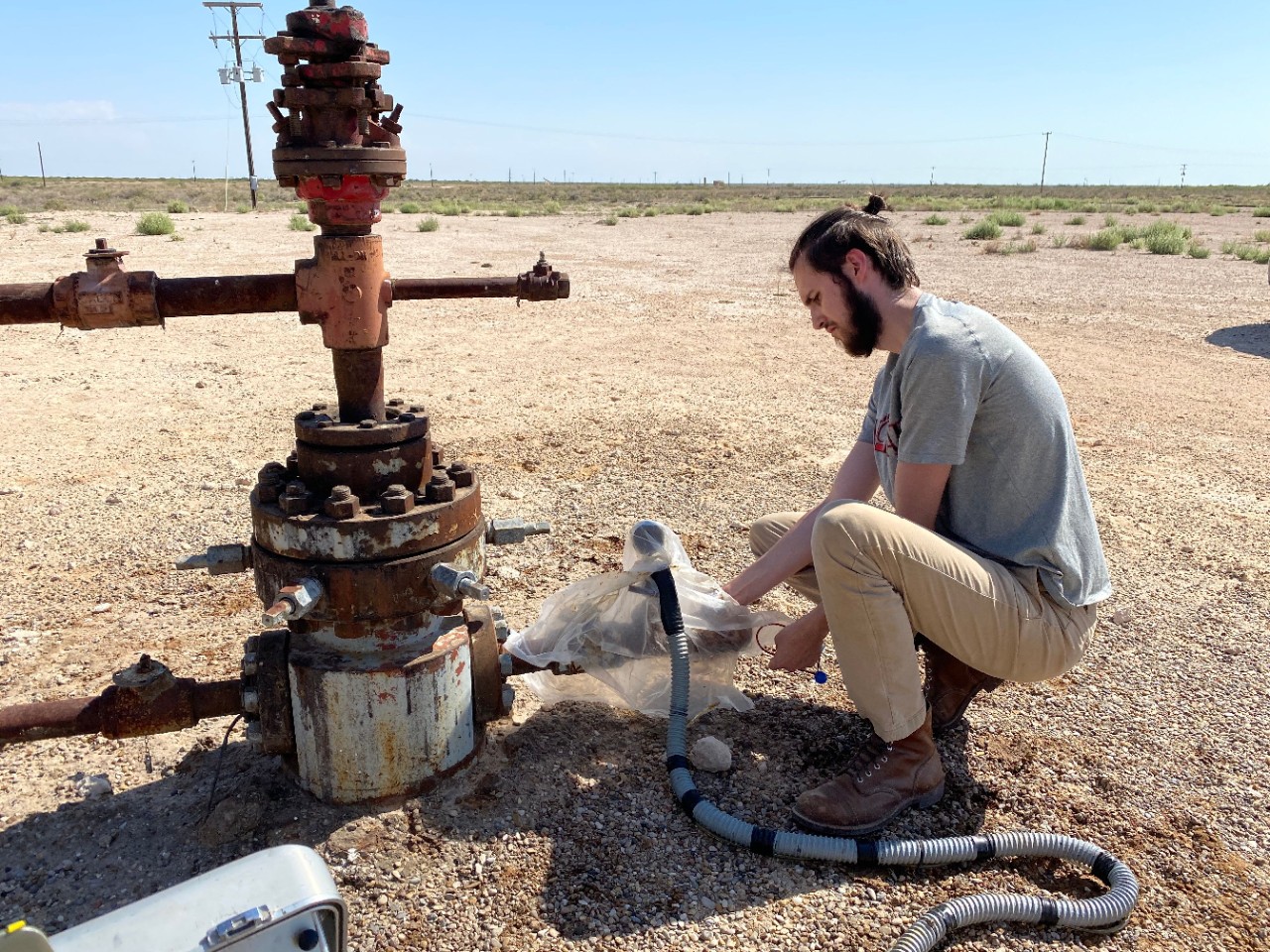
NYT: Methane leaks from wells far exceed current estimates
The study supports similar findings by UC about leaky wells in the Permian basin
The New York Times turned to University of Cincinnati associate professor Amy Townsend-Small to explain the significance of a new study that found far higher amounts of methane leaking from oil and gas wells and pipelines in New Mexico than was previously believed.
Stanford University examined 27,000 sites or about 90% of all wells in New Mexico and concluded that 194 metric tons per hour of methane, a potent greenhouse gas that contributes to climate change, were released into the atmosphere. This is more than six times what federal regulators estimated.
“If this result is similar in other basins — which we don’t know if it is — that would eliminate the greenhouse gas emission savings of the coal-to-gas transition,” Townsend-Small told the New York Times.
While she was not part of the Stanford study, a similar study by Townsend-Small and her students, published last year in the journal Environmental Research Letters, found that uncapped, idle oil wells could be leaking millions of kilograms of methane into the atmosphere and surface water each year. It was the first of its kind examination of methane emissions from inactive oil wells in Texas.
In 2016, Townsend-Small and her research partners examined methane leaks in 138 abandoned oil and gas wells and found that nearly 7% had measurable leaks.
Featured image at top: UC College of Arts and Sciences graduate Jacob Hoschouer takes samples at the site of an oil well in Texas. Photo/Provided
Related Stories
UC Journalism to host Hall of Fame, Young Alumni Awards
Event: April 24, 2025 6:00 PM
The College of Arts and Sciences’ journalism department will host the Hall of Fame and Young Alumni Awards to celebrate the achievements and accomplishments of its graduates. Induction into the UC Journalism Hall of Fame is a special honor reserved for UC alumni who have excelled in the profession of journalism and media, or individuals who have made a significant contribution to journalism at UC.
Bradford pear trees look pretty, smell awful. Why are they...
April 2, 2025
WLWT talks to UC biology Professor Theresa Culley about Ohio's ban on the sale or planting of nonnative and invasive pear trees. The trees are showing up in many parks and wild areas where they are crowding out native species.
Bird-safe glass added to UC building
April 2, 2025
UC biologist Ronald Canterbury tells Fox19 that bird-safe glass in buildings can save untold numbers of birds.
